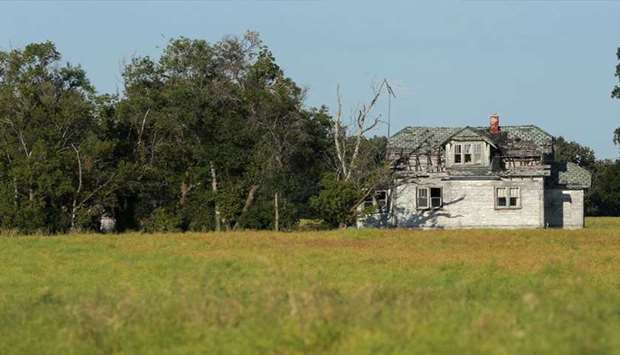Canadian farmers expanded canola plantings this spring to cash in on record-high prices, a government report showed yesterday, but Prairie drought threatens to scorch crops.
Surging demand for vegetable oil, used in cooking, and meal, an animal feed additive, sparked a global oilseed price rally this year, including canola.
Supply looks uncertain, however, as high temperatures and dry soils slow crop growth.
Much of Manitoba’s farm region is in extreme drought, with Saskatchewan mostly seeing moderate to severe drought, according to the federal government’s Canadian Drought Monitor.
Conditions at Bill Campbell’s Minto, Manitoba, farm are the driest since 1988, he said.
Canola, oat and corn crops are discoloured, and leaves are curling, signifying plant stress, with temperatures forecast to soar this week.
“Crops are for the most part getting by, but we’re running day to day, or week to week, on moisture,” said Campbell, president of the Keystone Agricultural Producers farmer group.
“We don’t have the moisture to sustain those type of heat waves,” he said. Canada is the world’s biggest producer and exporter of canola, a cousin of rapeseed, and a major wheat supplier.
Canola plantings reached 22.5mn acres, Statistics Canada said, up 1mn acres from the agency’s April estimate of seeding intentions and up 8% from last year.
Statscan’s estimate, which represent the largest canola plantings in three years, matched the average trade guess.
Statscan pegged all-wheat plantings at 23.4mn acres, slightly higher than the 23.3mn in the April report and down 6.5% from a year ago. With dry conditions stunting canola and wheat on the Prairies and in North Dakota, supplies look to run thin of both crops during the next year, said Lawrence Klusa, president of Seges Markets, an agriculture consultancy.

(File photo) Canola matures in a field near Beausejour, Manitoba, Canada August 20, 2020. (Reuters)
